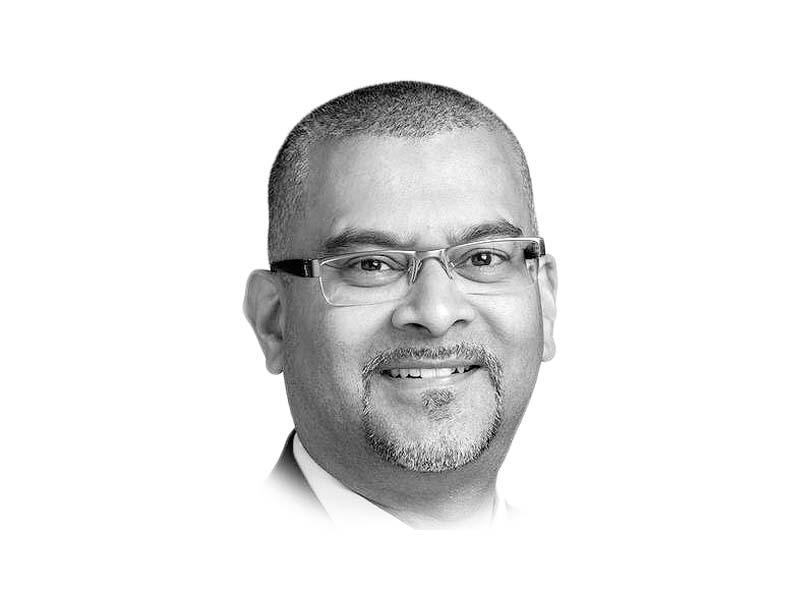
Rightfully, Manji, Channel 4 and many observers are outraged. In fact, Manji told the BBC’s Radio 4 Today show, “I think the fact that Kelvin MacKenzie can write a column and suggest that I am somehow sympathetic to a perpetrator of a terrorist attack, that somehow I am not like the rest of us, that I am the other, means that other people are now open to attack.” She went on, “It was upsetting enough to find myself the latest victim to Kelvin Mackenzie’s tirade. But now to know that he has been given the green light by the press regulator and that effectively it is open season on minorities, and Muslims in particular, is frightening.”
Her appeal of the decision was also rejected by IPSO. There is a lot to unpack here but the key point to note is that IPSO just does not get it. Yes freedom of expression is vital. Indeed, it is the oxygen of democratic fee societies. Yet it is never and never should be absolute. Core principles and values, like freedom of speech, cannot be sacrificed. At the same time, it must be noted that such freedoms do not exist in a vacuum. Indeed, common sense, human experience and history bear testimony to the fact they do not and cannot function without limits. The nature, extent and justifications for the limits will, of course, vary based on the social, religious and political contexts, as well as the maturity levels of the respective societies.
The Islamophobia or Muslimophobia that is increasingly becoming the only socially acceptable form of hate in the West should be as unacceptable as anti-Semitism. Promoting hate against any community is a threat to the very fabric of our increasingly multicultural/multiethnic/multireligious societies. Those of us in the West must acknowledge that outright malicious and incendiary insults and scapegoating do not advance the ideals of democracy or freedom. On the flip side, those in the Muslim world must understand that there are acceptable and civil ways to protest without resorting to death and destruction. The mocking of Muslims’ most sacred symbols and values, promoting hate and hiding behind freedom of speech has little to do with western democratic values and everything to do with a western media and elements of society who reflect and play into increasingly xenophobic and Islamophobic segments.
Healthy criticism provokes thought and fuels the collision of opinion, which is a necessary, if uncomfortable, process resulting over time in improved understanding of the self as well as of the other. Yet, free speech should be exercised in a manner that is balanced, fair, nuanced and contextualized. Free speech cannot be unlimited and is not in any jurisdiction, even though some like to pretend it is. Every society sets certain legal limits defined by knowledge of and respect for local customs, sensibilities and what is perceived, rightly or wrongly, as existentialist threats.
The boundaries placed on free speech should be minimal, however, and should serve to prevent libel, promote respect for individuals, curb hate and avert violence. In keeping with this approach, individuals’ and institutions’ self-restraint in the exercise of free speech is of paramount importance. Ultimately, there are legitimate and illegitimate ways to address the relationship between free speech and mutual respect. The illegitimate option is through violence and promoting of hate. Legitimate options include the precise application of judicious law, responsible journalism and promotion of the visibility of minorities’ and others’ views.
While it may sometimes be justified or worth offending people whether they be religious or non-religious, individuals and institutions may nonetheless wish to restrain themselves in the interest of maintaining social cohesion and preventing marginalisation, hate and even unrest.
Rather than dismissing Manji’s complaint as taking the West down the slippery slope of banning any critical discussion of religion, it would have been more intellectually honest to address the impact of such statements in the context of the growing Islamophobia.
In her complaint to IPSO, Manji wrote: “I respect and honour the principle of freedom of expression; I understand that individuals are entitled to make challenging and controversial statements… In this case, the Sun published an opinion article that abused that principle of freedom of expression. The purpose of the article appeared to be to incite hatred against Muslims in general, Muslim women in particular, and me.”
But IPSO, blind to the systemic structural inequalities and asymmetrical power relations and dynamics, cavalierly stated: “While the columnist’s opinion was undoubtedly offensive to the complainant, and to others, these were views he had been entitled to express.” The watchdog continued: “Furthermore he was entitled to express his view that, in the context of a terrorist act which had been carried out ostensibly in the name of Islam, it was inappropriate for a person wearing Islamic dress to present coverage of the story.”
As Channel 4 responded: “His inflammatory comments on Fatima Manji’s professional status, which were widely condemned, and his attempts to equate the wearing of a hijab with support for terrorism, have no place in a properly informed and tolerant society.” Arguing that a Muslim journalist should be prevented from covering a story essentially (or especially) because she is wearing a hijab is preposterous. In fact, Clause 12 of the editors’ code of practice states that the press must avoid “prejudicial or pejorative reference to an individual’s race, colour, religion, sex, gender identity, sexual orientation or to any physical or mental illness or disability”.
I highly doubt that IPSO would have made the same ruling had the statement been made in a similar context involving a Jewish reporter or a homosexual reporter. They would, of course, argue and I would agree that context matters. The IPSO just does not see Muslims in the same light.
Published in The Express Tribune, October 29th, 2016.
Like Opinion & Editorial on Facebook, follow @ETOpEd on Twitter to receive all updates on all our daily pieces.













COMMENTS (1)
Comments are moderated and generally will be posted if they are on-topic and not abusive.
For more information, please see our Comments FAQ